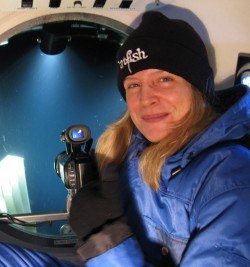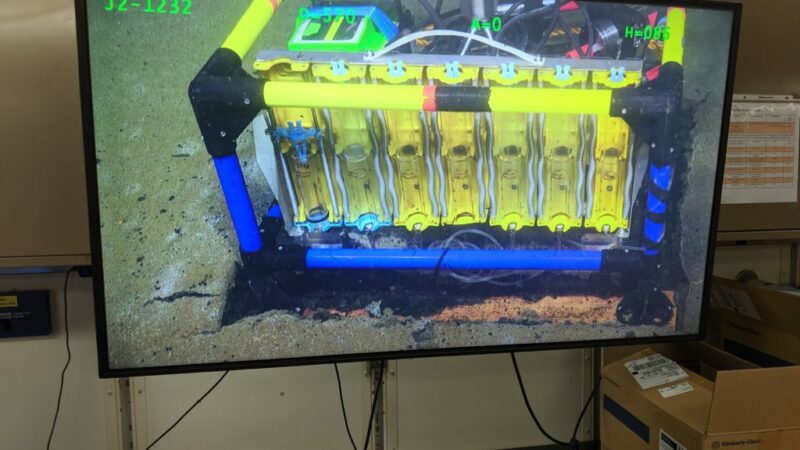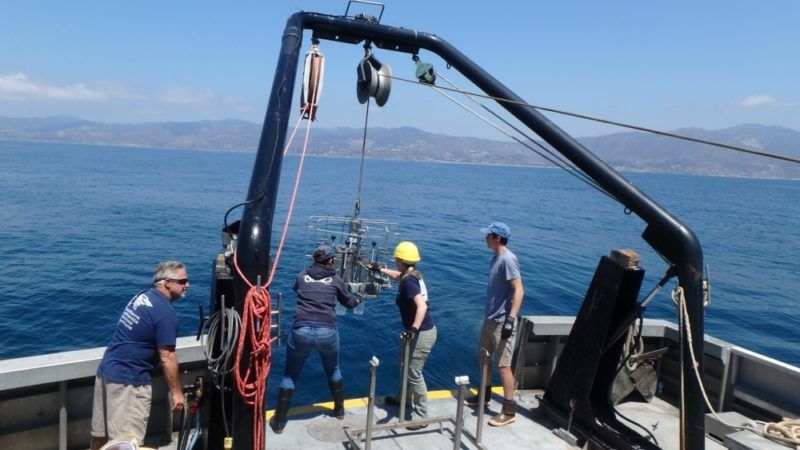
Tina Treude
Director, Marine Center; Professor
Department of Earth, Planetary, and Space Sciences, Department of Atmospheric and Oceanic Sciences
3806 Geology Building
Los Angeles, CA 90095-1567
310-267-5213
ttreude@g.ucla.edu
Tina Treude is a professor for marine geomicrobiology in the Department of Earth, Planetary and Space Sciences and in the Department of Atmospheric and Oceanic Sciences. She is the director of the IoES Marine Center. She received her diploma in biology from the University of Kiel (Germany) in 1999 where she studied biological oceanography, physical oceanography, and zoology. In her diploma thesis, she studied the community structure and energy budget of deep-sea scavengers, including fish, crabs and amphipods. She received a PhD in Biogeochemistry from the Max Planck Institute for Marine Microbiology and the University of Bremen (Germany) in 2004. In her PhD thesis, she studied the microbial anaerobic oxidation of methane in marine sediments. After postdoctoral studies at the University of Southern California (2005-2007), she was a Professor at the GEOMAR Helmholtz Centre for Ocean Research in Kiel, Germany between 2007 and 2014. At GEOMAR she was involved in two major marine Collaborative Research Centers (SFB 574 and 754) and the Cluster of Excellence “The Future Ocean”. She arrived at UCLA in Fall 2014.
Treude’s research focuses on geomicrobiological processes in marine environments. One of her main areas of research focus since her PhD thesis is the study of microbial processes involved in the production and consumption of methane. Methane is the product of organic matter degradation, an energy source for microbes and humans, and a potent greenhouse gas. Quantifying the balance between methane production and consumption is crucial for the understanding of past, present, and future biogeochemical cycles.
Another major part of Treude’s current research is marine oxygen minimum zones and coastal hypoxia. Scientists agree that the oceans are losing oxygen due to warming and eutrophication, but we are still far from understanding how these low oxygen environments function. Treude’s research aims at deciphering biogeochemical cycles in oxygen minimum zones (including nitrogen, iron and sulfur cycling) and to provide a baseline for predictions of future developments under climate change.
Aside from these two major research areas, Treude’s group has studied a broad range of geomicrobiological processes, including petroleum degradation, plastic alteration, biogeochemical processes at whale fall and in the deep biosphere, and microbial precipitation and alteration of carbonates.
Treude’s marine research has taken her around the world on many research vessels. She spent over two years on the ocean, has been in submersibles to dive into the deep sea and saw environments with her own eyes that few have seen before. She considers herself lucky to explore the marine environment and made it her goal to share her experience and appreciation of the ocean with others.


